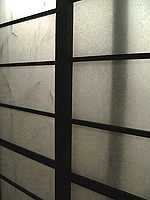|
|
||||||
Hombu dojo of
|

|
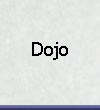 |
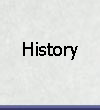
|

|

|
|
|
Recent events Instructors Karate-go Reflections Archives
|
||||||
|
Reflections Student artwork and excerpts from student essays. |
||||||
|
How we gaze at others in
circumstances to confront, diffuse or avoid a potentially dangerous
situation is key to our survival. After many years helping the homeless,
living through the race riots of the 1960s, serving in the army, working
for Loomis Armor and then as a corrections officer at Riker's Island, my
advice is "Do NOT ignore that there is a situation that can potentially
exist." Some will say do not stare or make eye contact with someone who
may be belligerent. And if something does occur we will of course want
to confront it head on. But we must look and acknowledge the person is
there in the first place, and have them acknowledge you are aware of
their presence.
|
||||||
 |
In my life outside of the dojo
I have been adding a little more than I used to expect of myself, a
little more than I feel life may expect of me. I no longer want to just
live on bare minimums but am pushing myself to go past the level of
anything that I feel I have to accomplish. The enrichment from my
training is of an immense wonder in my goals and endeavors, not only
while in the dojo but throughout my life.
My job had gotten worse as the
year has gone on. Frequently working weekends, more demands, longer
hours, and shorter tempers test my strength every day and some days are
worse than others. The weight of it stalks my footsteps to the locker
door. I change into my gi and feel as if Iím robed in mithril Ė light as
a feather, hard as dragon scales. The shadowy specter of the day is held
back. |
|||||
|
When I first entered the
Midtown Karate Dojo I did not realize that I was about to embark on a
life-long journey and join a society whose foundations can be traced
back many centuries to great Karate masters. These masters of self
defense have developed a system of techniques performed in geometric
patterns called Kata that can only be absorbed by the practitioner
through time, training and repetition with guidance from those who have
been training for longer periods of time.
|
||||||
|
In response to a question of whether the karate-do concept remains as true as it had in the past, Master Ueshiro confidently replied,
|
||||||
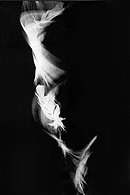 |
I was reading the "The Shorin-Ryu Karate Question and Answer Book" and came across a quote that stood out to me as what really sums up my experience as a karateka.
|
|||||
|
"Gan" is an interesting quality to consider in terms of warrior spirit. A translation I like is "awareness," requiring a general alertness as well as a generalized focus that encompasses 360 degrees. With regard to a particular individual, the focal point is the throat, not the eyes, and even with that there is a nearly simultaneous combination with glancing about the broader terrain. Yet try carrying on a conversation with someone while in warrior mode.
|
||||||
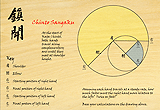 |
There are times when I practice kata that I completely loose myself. I end the kata where I began it. I bow and I don't remember how I arrived at this point. I've forgotten when I turned left or right, when I punched or kicked, even time seemed to stop. Within this "pure action" there is a feeling of completeness, progress, freedom and power. The more I practice, the more consistently it happens. And there are also times when I misstep, loose balance, or forget what comes next. The kata does not end where it began, but I fix my gi, grit my teeth, wipe away the sweat and try again to achieve the loss of self. |
|||||
|
|
Thirteen years
ago, in my essay for my first green tip, I quoted a passage from
"The Shorin-Ryu Karate Question and Answer Book" that said,
"Karate should come second to the goals of success, family and
education." I wrote in response that I was "not able to find a
balance between my karate training and personal responsibilities."
Over the ensuing years, my personal responsibilities grew enormously,
from career man to husband to father to family man. I kept thinking that
somewhere along the way I would find that perfect balance.
|
|||||
|
Although I may have matured simply with age, my demeanor, patience, empathy towards others and my thought processes have evolved over time thanks to the constant repetition of kata. In most situations I realize now that I need to mentally take a step back, assess the situation, and attack it with calmness and a clear mind.
|
||||||
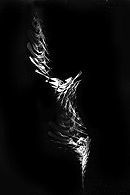
|
Many aspects of karate are capable of being explained by science. Elements of power, foundation, body mechanics, breathing, and range of motion (to name but a few) can be "broken down" and explained as components of the larger whole. I have spent years pouring over these individual elements, attempting to wring from then all their information and put those pieces of knowledge together with others in the puzzle so that the entire picture may become clear.
|
|||||
|
"Karate is a lifetime marathon." I have watched myself take part in this marathon for many years. As a person who
expects a lot and demands much more of myself, I have tried to objectively assess where I am in relation to the finish line. Am I ahead?
Am I falling behind? Have I hit the wall?
|
||||||
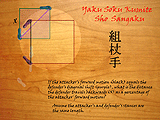 |
The deck is a laboratory for life; kata, the conduit. The quest is to better your opponent, yourself. The battlefield is both real and imagined; against the external attacker and the internal battle in one's own mind. To succeed one must simply keep moving forward - at times through a subtle shift and others with a full-out charge - and face what's next with full conviction. In trying to vanquish our opponent we make friends with life's dichotomies: to find the ease in what is difficult and to recognize that what comes easily is merely encountering the difficult at its most basic
level.
|
|||||
|
The benefits of
karate are limitless and, at the same time, fixed and peculiar to each
karateka. What may be of major benefit to one may be of marginal benefit
to another. To articulate why karate is so important to me: I credit the
practice of karate with keeping not only my body fit but my mind fit as
well, keeping mind and body in touch. Kata helps to keep our synapses
not only firing but targeted. Use it or lose it!
|
||||||
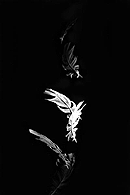
|
Some of the words and expressions used in our training get repeated so often we begin to lose sight of their true meaning. "Step First" - These two words make up the very basis of our karate discipline. "Step first" describes the mechanics, but more importantly, it exemplifies the philosophy. One must be positioned, aligned and rooted before delivering any technique. This is as true in the martial arts as it is in our own lives, personal and professional. "Step First" is more than just a rote movement.
|
|||||
|
In pushing myself beyond my physical comfort level, by working that sweat and bringing out the endorphins, I find that I now possess an increased sense of well being and of being blessed.
|
||||||
|
In a word, what has stuck in me forever is this continuing and lifelong interest in "Karate is Zen" - moving meditation, and how our energy (mind/body/spirit) is at one, focused on and at the moment, and can be channeled automatically to move forward to deal with lifeís challenges, whether itís a physical attack, stress at work, illness, etc.
|
||||||
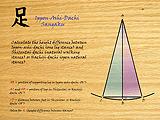 |
It is amazing to be embraced as a member of this family where we foster growth in each other while becoming stronger as a group. My karate training has been a
rem+rkable journey and pillar in my life. I often relate lessons learned in the dojo and apply them to life outside of the school.
|
|||||
|
|
Training in
karate means self-respect and respect for others no matter who they are.
"Karate begins and ends with courtesy." I consider this an
important part of my life and consistent with my beliefs and values.
|
|||||
|
I attended my
first weapon seminar on Sunday March 21, 2010 seven months after I was
promoted to Ni-Kyu and I must say the seminar triggered a flood of
memories of my early teens growing up in Sierra Leone, West Africa and
helping out in my grand pa and uncle's farm during school holidays.
Those were days of hard work because subsistent faming was done the
peasant way, by hand, using tools very similar to the ones the Okinawans
used.
|
||||||

